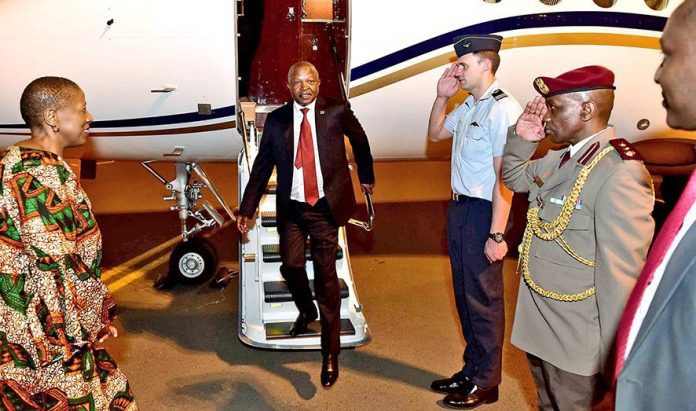Our perception of the world is largely influenced by what the media and opinion makers say in the public discourse and, consequently, popular perception about events, people, and worldviews. In the media, Queen Elizabeth II is shown to be a kind, caring and charitable person.
However, the media does not tell us that she was in charge of the brutal, and resource-plundering former British Empire, which left former colonies in underdevelopment and wealth inequality. Depending on the point of view from which you get your information, we have two different pictures of the same person.
In South Africa, though there is accessible evidence to the contrary, the media would have us believe that Deputy President, David Mabuza, is not working. This notion has been propagated in recent days by analysts like Ralph Mathekga and Ebrahim Harvey on the political processes unfolding within the ANC.
It lacks empirical analysis of concrete facts as expected in the discipline of political science. Maybe this story is also fuelled by the fact that South Africans are used to politics based on rhetoric and soundbites. This makes it easy for them to think that if the deputy president is not going around talking, he is not working.
The media does not inform the public that a lot more is done behind closed doors in government committees than in public. Moreover, the deputy president’s work is guided only by the responsibilities delegated to him.
In delegating these responsibilities to his deputy, the president employs phrases like “strengthening executive-parliament relations”, “coordinating government programmes”, and “assisting the president in efforts towards a better Africa”.
The deputy president coordinates government structures to improve their efficiency.
The president has established inter-ministerial committees under the deputy president to address complex pressing issues so that the government can steer the country through challenging times. These task teams are not cosmetic; they enhance government and societal synergy.
A cursory search on government websites would show the amount of work that the deputy president has undertaken as part of these structures.
During 2019-2022, 81 media advisories and 68 speeches by the deputy president were issued on the presidency website. In the same time period, the deputy president has appeared before parliament 25 times, answering 750 main and
follow-up questions. This cannot be absence in action. Why has it not featured despite continued communication?
These are not just responses and speeches, but the deputy president’s articulation of government performance, policy positions, personal thoughts, and philosophical outlook on national and global issues. This fulfils the constitutional obligation of facilitating
public participation, promoting greater transparency, and nation-building through the deepening of democratic cultures and practices.
The deputy president’s coordination function responds to constitutional injunctions. These include nation-building, public participation, social cohesion, human dignity stemming from the right development and restoration of land rights as an instrument of heritage, ending HIV/Aids and TB as public health threats by 2030, as well as peaceful co-existence of nations through diplomatic resolution of conflicts.
It is a matter of record that the deputy president has been performing all the tasks and responsibilities as assigned by the president. He has been traversing the country to engage with sectors of society including farmers, business leaders, traditional and Khoi-San leaders, faith-based leaders, traditional health practitioners, activists on land and health rights, and many others in what he terms “policy in action”. Credible reporting on these committees’ work is clearly missing. The soundbite culture lacks substance and requires only rudimentary analysis, resulting in lazy thinking.
The design of our democracy is such that the public does not know what happens in cabinet committees, including individual opinions and stances, until the cabinet spokesperson announces outcomes during a cabinet briefing, which do not come with a tag from the deputy president or any other member.
The world has just recovered from a global pandemic that altered the world order as we knew it. Through vaccinations, we have managed to take the sting out of the coronavirus, and more lives have been saved against this deadly virus. Deputy President Mabuza was in charge of the coordinating structure in these efforts.
Doomsayers tried to convince the public that the drive would be marred by corruption under the deputy president’s stewardship. History proved them wrong.
Many would argue we cannot praise a fish for swimming. In the case of Deputy President Mabuza, the public was led to think the fish never entered the water, let alone swim.
- Matshepo Seedat is a Media Specialist in the Presidency
Follow @SundayWorldZA on Twitter and @sundayworldza on Instagram, or like our Facebook Page, Sunday World, by clicking here for the latest breaking news in South Africa. To Subscribe to Sunday World, click here.
Sunday World



